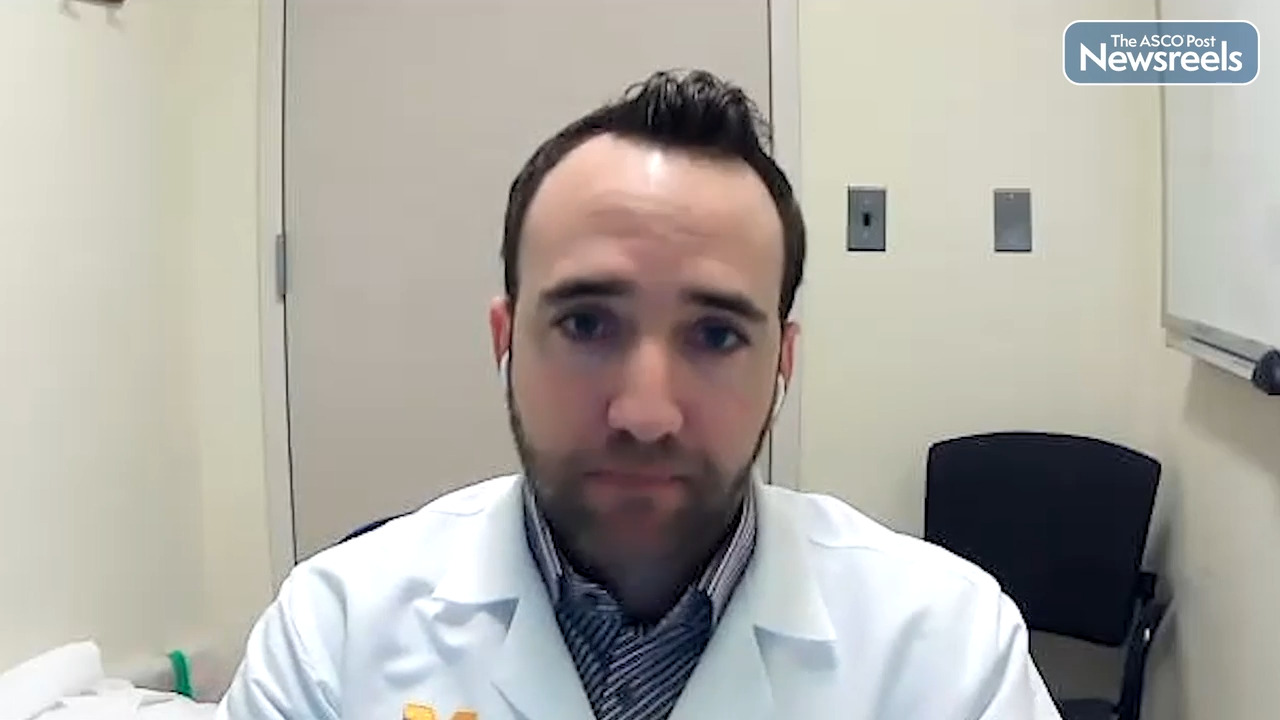Jamie Takayesu, MD, on Genitourinary Cancer: Disparity in Physicians’ Assessment of Sexual Dysfunction in Women vs Men
2022 ASTRO Annual Meeting
Jamie Takayesu, MD, of the University of Michigan, discusses her findings on how frequently physicians are asking their female and male patients with genitourinary cancers about sexual dysfunction. Although 62.79% of women with genitourinary cancer who received brachytherapy thought they should be regularly asked about sexual function, just 13% of women, compared with 89% of men, were actually discussing sexual health with their providers. Even though brachytherapy is known to have a deleterious impact on sexual function, many women are not being monitored for this functional outcome as often as men. (Abstract 2306).
The ASCO Post Staff
Emily C. Daugherty, MD, of the University of Cincinnati, discusses results from the FAST-01 study, which showed that FLASH proton radiotherapy, delivered at ultra-high–dose rates, may be efficacious, with adverse events comparable to conventional dose-rate treatment of patients with cancer. Researchers continue to collect toxicity data to evaluate long-term results (Abstract 6).
The ASCO Post Staff
Alex K. Bryant, MD, of the University of Michigan, examined Veterans Administration (VA) facilities in which lower prostate-specific antigen (PSA) screening rates were associated with a subsequent increased incidence of metastatic prostate cancer, particularly among men aged 70 and older. From 2008 to 2019, PSA screening rates have declined in the national VA system, data that may be used to inform shared decision-making about the potential benefits of screening for those who wish to reduce their risk of advanced prostate cancer. (Abstract 298).


